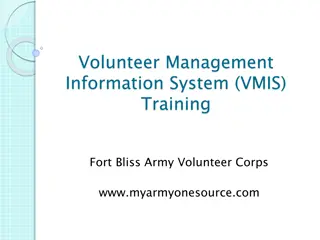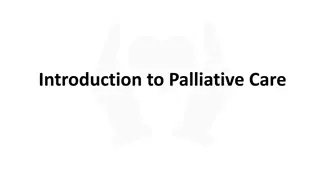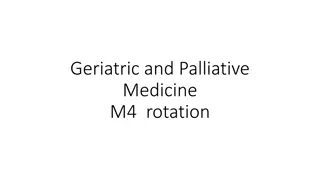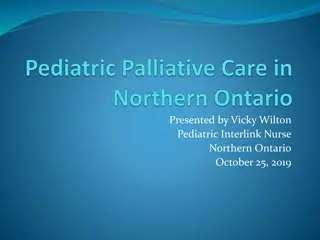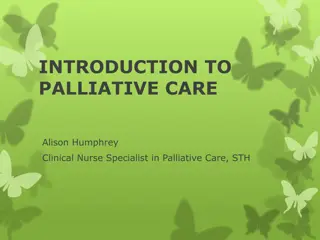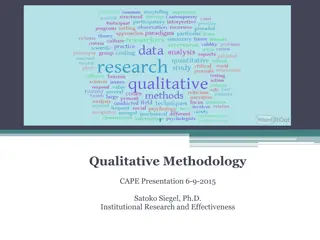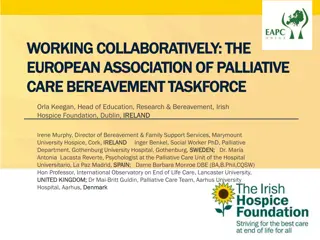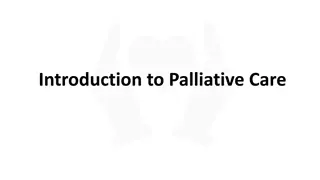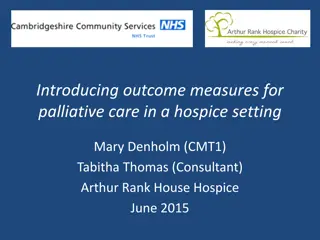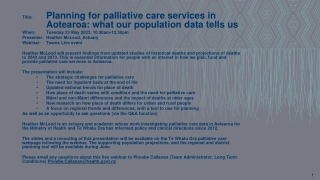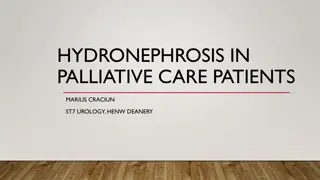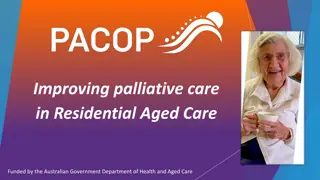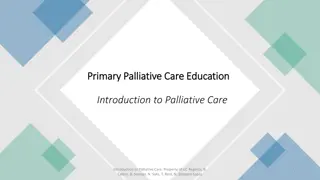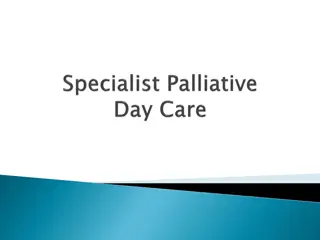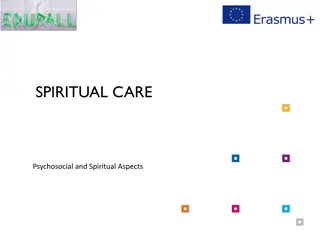Exploring European Volunteer Voices in Palliative Care: A Qualitative Analysis
This study delves into the experiences and perspectives of volunteers in hospice and palliative care across eight European countries. Through qualitative analysis, the research uncovers the diverse activities, meanings, and impact of volunteering in these sensitive contexts. Volunteer narratives reveal themes of personal growth, connection with patients and families, and finding meaning in the face of suffering and loss.
Download Presentation

Please find below an Image/Link to download the presentation.
The content on the website is provided AS IS for your information and personal use only. It may not be sold, licensed, or shared on other websites without obtaining consent from the author. Download presentation by click this link. If you encounter any issues during the download, it is possible that the publisher has removed the file from their server.
E N D
Presentation Transcript
The voice of European volunteers: A qualitative analysis of accounts of volunteering in palliative care contexts Dr. Ros Scott, Prof. Anne Goossensen, Prof. Sheila Payne, Mag. Leena Pelttari, MSc EAPC Task Force on Volunteering
Background and Aims Volunteer voices not often heard directly Aims of the project: Explore what volunteering in hospice and palliative care means to volunteers. Explore the similarities and differences in European volunteers activities and meanings.
Methodology Approached contacts in eight countries Each 5 volunteer stories (400-500 words) own language Two questions as framework What do you do as a volunteer? What does volunteering mean to you? Translated into English Framework analysis
36 Stories 8 countries Austria Finland France Germany Italy Netherlands Poland UK
Context Gender of participants: 20 female 6 male 10 did not state Settings: hospice ward, day hospice, patients homes, hospital palliative care wards
Volunteer Activities Direct patient care and support Family support Bereavement support Religious and faith activities Organisational support
How activities are performed without judgment presence silence empathy quietly and lovingly observe quietly being sensitive with all my heart not to seek anything
Volunteering and meaning Six key themes: Giving meaning to own life: learning from patients, from sorrow, staying grounded, inner peace, a richer, grateful person Growing through making connections: open to fears, hopes, stories of others, being with, acknowledging uniqueness of others.
Volunteering and meaning 2 Brings new perspectives: new ways to understand sickness, sorrow and death, complexity/uniqueness of death, material things less important. Providing comfort in moments that count: work emotionally heavy, leaves marks on my soul , difficult being with someone dying, negative impact more restless and impatient.
Volunteering and meaning 3 Personal development/achievement: building confidence, learning from mistakes, more tolerant and forgiving, value in personal growth from volunteering Grateful and privileged being part of lives at vulnerable moments, privileged to accompany dying people, thankful..I am allowed to be there
Less common themes Activities: counselling patients- living will, massage, taking patients to see home for last time. How: And we laugh, too to be honest, we laugh a lot , a laugh can be liberating in many situations". Meaning: volunteering as an act of solidarity , a gift does nor mean much to me not about solving your own problems
Conclusion Collecting personal stories from volunteers across Europe highlights some similarities of experience and shared values. An understanding of motivations and meaning can help HPC organisations to improve support and maximise volunteer contributions.
THANK YOU To contact us for more information on the stories project: r.z.scott@dundee.ac.uk Please sign the EAPC Charter on Volunteering at http://bit.ly/EAPCVolunteeringCharter


